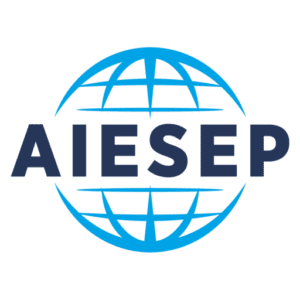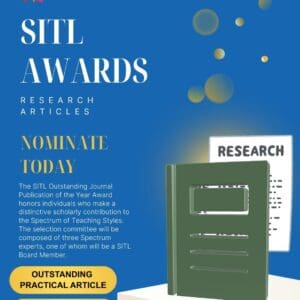Reimagining Teaching Personal and Social Responsibility (TPSR) within Health and Physical Education Curriculum: Exploring the Transformative Potential of the Socially-Just TPSR Approach
With this Special Issue, we intend to bring together voices, knowledges, and theoretical and empirical research to explore Teaching Personal and Social Responsibility (TPSR; Hellison, 2011) within health and physical education curriculum from a critical lens. We also seek to understand the opportunities, challenges, and transformative potential of the Socially-Just Teaching Personal and Social Responsibility (SJ-TPSR) approach (Scanlon et al., 2022; 2024) as a pedagogy of social justice in health and physical education (teacher education) curriculum.
Researchers have alluded to the challenges faced by teacher educators attempting to teach critical/social justice pedagogies (e.g., Flory & Walton-Fisette, 2015; Shelley & McCuaig, 2018). These challenges may stem from a possible disconnect between socio-cultural research (e.g., social justice) and pedagogical research (e.g., teacher education practices) (Flory & Walton-Fisette, 2015; Hickey et al., 2019; Marttinen, 2021) and as such, authors (e.g., Flory & Landi, 2020) have suggested the need to re-think and re-imagine physical education curriculum, practice, and policy by making new connections and relationships between socio-cultural and pedagogical spheres. There have been historic (e.g., Kirk, 1986; 2020; Tinning, 1991; Wright, 1995) and recent (e.g., Lynch et al., 2022; Kirk, 2020) calls for more social justice work in the field.
We invite international scholars who are eager to contribute to discussions on the above and open the call for further research that problematises TPSR in search for new possibilities and potentialities in teaching for social justice – in Dr. Hellison’s words: ‘What’s possible?’. Following this advice, and building on Hellison’s work, the SJ-TPSR approach provides a promising means of addressing some of these challenges as it is designed for implementation in the physical spaces of physical education. We have previously published the theoretical vision of the SJ-TPSR approach (Scanlon, Baker, & Tannehill, 2022), some initial implementation guidance for teachers (Baker, Scanlon, Tannehill & Coulter, 2023), and the first teacher educator enactment of the approach (Scanlon, Baker, Coulter & Tannehill, 2024).
The aim of this Special Issue is to create dialogue on pedagogic and curriculum approaches to social justice between (and beyond) practitioners and researchers (i.e., physical education teachers and teacher educators) to gain new insights into the possibilities and challenges of teaching for social justice. This can provide conceptual and empirical weight to TPSR (and the SJ-TPSR approach) as a means of teaching for social justice, which in turn offers teachers and teacher educators a viable and accessible approach through which to explicitly integrate social justice into their teaching and research. This Special Issue will be composed of eight manuscripts (approximately 6,500 words each). Individuals from a variety of contexts and career stages are encouraged to submit to ensure a broad range of perspectives and understandings of pedagogical and curriculum possibilities and implications.
The following topics will be considered (but not limited to) for submission:
- Teaching Personal and Social Responsibility: Hellison’s contribution to social justice.
- Innovative methodologies in exploring and enacting the TPSR from a critical lens.
- Pedagogical interrogation of the SJ-TPSR approach.
- ‘What’s possible?’: Curriculum possibilities for the use of the TPSR in teaching for social justice.
- Innovative insights into school physical education curriculum practice: Teachers’ experiences on enacting the SJ-TPSR approach in K-12 physical education.
- TPSR from a critical lens: Diverse voices, understandings, and perspectives to pedagogy, policy, and curriculum.
While the call for submissions is open to all, our intention is to gather diverse perspectives from multiple contexts to provide a deeper (conceptual and empirical) understanding of the SJ-TPSR approach and TPSR teaching for social justice.
References
- Baker, K., Scanlon, D., Tannehill, D., & Coulter, M. (2023). Teaching social justice through TPSR: where do I start?. Journal of Physical Education, Recreation & Dance, 94(2), 11-18. DOI: 10.1080/07303084.2022.2146611
- Flory, S. B., & Landi, D. (2020). Equity and diversity in health, physical activity, and education: connecting the past, mapping the present, and exploring the future. Physical Education and Sport Pedagogy, 25(3), 213–224. DOI: 10.1080/17408989.2020.1741539
- Flory, S. B., & Walton-Fisette, J. L. (2015). Teaching sociocultural issues to pre-service physical education teachers: A self-study. Asia-Pacific Journal of Health, Sport and Physical Education, 6(3), 245–257. DOI: 10.1080/18377122.2015.1092722
- Hellison, D. (2011). Teaching Personal and Social Responsibility through Physical Activity. Human Kinetics.
- Hickey, C., Mooney, A., & Alfrey, L. (2019). Locating criticality in policy: The ongoing struggle for a social justice agenda in school physical education. Movimento, 25, e25063. DOI: 10.22456/1982-8918.96231
- Kirk, D. (1986). “A Critical Pedagogy for Teacher Education: Toward an Inquiry-oriented Approach.” Journal of Teaching in Physical Education 5 (4): 230–246. DOI: 10.1123/jtpe.5.4.230
- Kirk, D. (2019). Precarity, critical pedagogy and physical education. Routledge. DOI: 10.4324/9780429326301
- Lynch, S., Walton-Fisette, J. L., & Luguetti, C. (2022). Pedagogies of social justice in physical education and youth sport. Routledge. DOI: 10.4324/9781003162858
- Marttinen, R., Host. (2021). “2021 AERA SIG Scholar Lecture by Katie Fitzpatrick.” (No. 160) [Audio Podcast Episode]. In Playing Research in Health & Physical Education. https://podcasts.apple.com/gb/podcast/160-2021-aera-sig-scholar-lecture-by-katie-fitzpatrick/id1434195823?i=1000516954256
- Scanlon, D., Baker, K., & Tannehill, D. (2022). Developing a socially-just teaching personal and social responsibility (TPSR) approach: A pedagogy for social justice for physical education (teacher education), Physical Education and Sport Pedagogy. 1-13. DOI: 10.1080/17408989.2022.2123464
- Scanlon, D., Coulter, M., Baker, K., & Tannehill, D. (2024). The enactment of the Socially-Just Teaching Personal and Social Responsibility (SJ-TPSR) approach in physical education teacher education: Teacher educators’ and pre-service teachers’ perspectives. Physical Education and Sport Pedagogy, 1-17. DOI: 10.1080/17408989.2024.2319071
- Shelley, Karen, & Louise McCuaig. (2018). “Close Encounters with Critical Pedagogy in Socio-Critically Informed Health Education Teacher Education.” Physical Education and Sport Pedagogy 23 (5): 510–523. DOI: 10.1080/17408989.2018.1470615.
- Tinning, R. (1991). “Teacher Education Pedagogy: Dominant Discourses and the Process of Problem Setting.” Journal of Teaching in Physical Education 11 (1): 1–20. DOI: /10.1123/jtpe11.1.1
- Wright, J. (1995). “A Feminist Poststructuralist Methodology for the Study of Gender Construction in Physical Education: Description of a Study.” Journal of Teaching in Physical Education 15 (1): 1–24. DOI: 10.1123/jtpe.15.1.1

